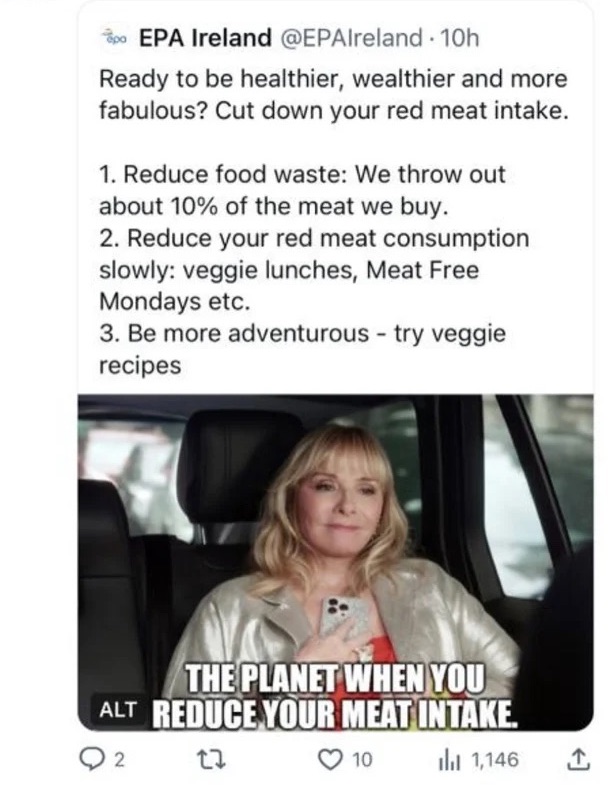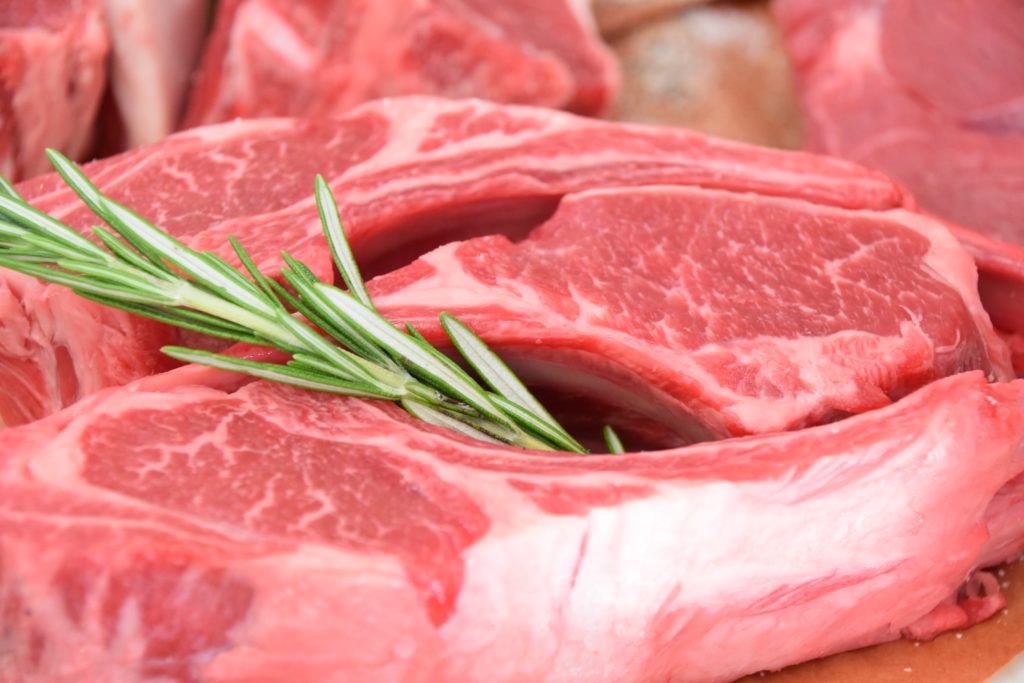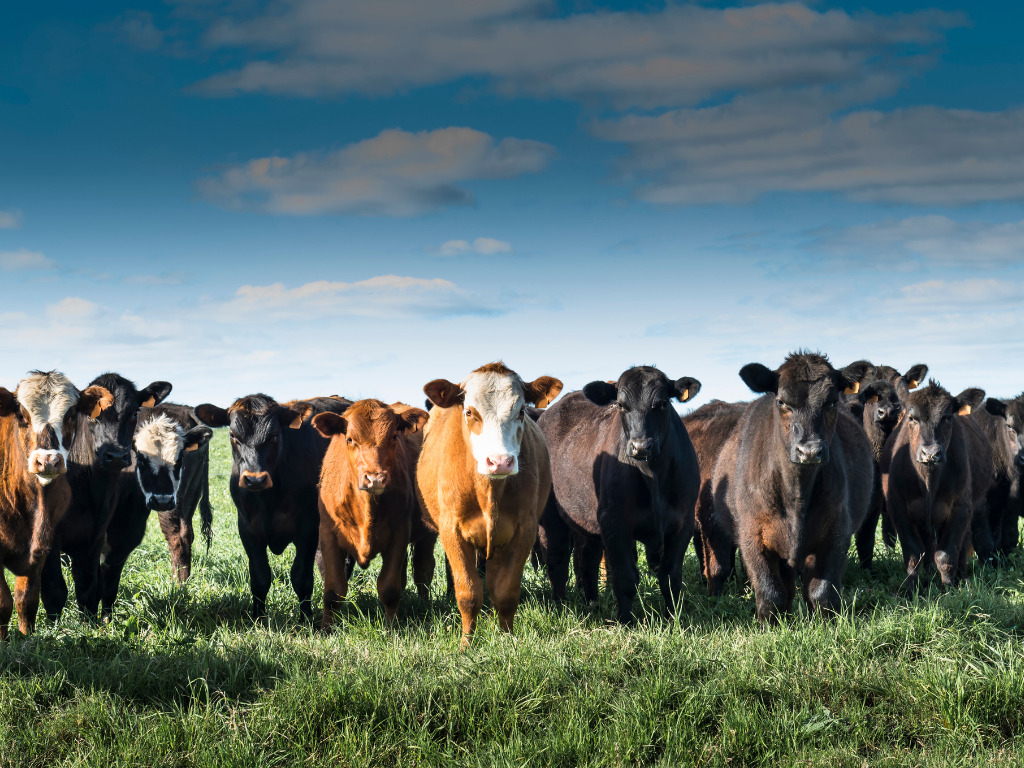Irish Environmental Agency Deletes Tweet Encouraging People to Eat Less Red Meat After Farmer Backlash
5 Mins Read
The Irish Environmental Protection Agency (EPA) has deleted a tweet advising citizens to cut down on red meat consumption after backlash from animal agriculture groups. The move, which sees a governmental watchdog being shut down for promoting a more eco-friendly diet by private industry, could have serious implications for Ireland’s climate position.
On Sunday, EPA Ireland posted a tweet promoting Meat-Free Mondays and vegetable-forward eating. “Ready to be healthier, wealthier and more fabulous?” it read. “Cut down your red meat intake.”
It went on to list three ways of doing so: “1. Reduce food waste: We throw out about 10% of the meat we buy. 2. Reduce your red meat consumption slowly: veggie lunches, Meat Free Mondays, etc. 3. Be more adventurous – try veggie recipes.”
The tweet was accompanied by a photograph Sex and the City actor Kim Cattrall letting out a smile and a sigh of relief, with the words: “The planet when you reduce your meat intake.”
Cutting down on red meat has scientifically been proven to reduce an individual’s environmental footprint. Beef and lamb are the two foods with the highest greenhouse gas emissions. A recent report by the Nature Food journal found that veganism can cut one’s emissions by 75% compared to a meat-rich diet.
But the EPA’s factual tweet received heavy backlash from animal agriculture groups, who lambasted it as an overtly political campaign. The Irish Farmers’ Association (IFA) said the post had caused considerable anger among producers who thought it went “beyond the remit of the EPA and is not consistent with government dietary guidelines” (despite the Irish government recommending its citizens to “eat more vegetables”).

A meaty backlash
The IFA said it had asked for a meeting with EPA Ireland to discuss the tweet and requested for it to be deleted “as a matter of urgency” – and in what is yet another example of the unchecked influence of the meat lobby, that tweet has now been deleted.
The Irish Cattle & Sheep Farmers’ Association (ICSA) criticised the tweet, whose CEO Dermot Kelleher called it “a blatant anti-meat crusade”. “The tweet from the EPA suggests that cutting back on meat makes you ‘healthier, wealthier and more fabulous’ – views which are subjective depending on context and then compounds this with the misleading suggestion that food waste is a meat problem, when in fact, most research says it is much more pronounced with fruit and vegetables, as well as bread,” he said.
It’s statements like this that explain why there is a massive media reporting gap when it comes to livestock farming and the climate crisis. A study has found that only 7% of all media coverage about climate change mentions animal agriculture, despite the UN’s Food and Agriculture Organization data revealing that 14.5% of all greenhouse gas emissions come from livestock farming.
Kelleher added: “Dishing out dietary advice is not an area the EPA should be getting into given their role as a trusted scientific referee… The tweet might well be acceptable from a vegan or vegetarian lobby group. However, in the context of a body charged with environmental regulation, and key data measurement in respect of climate and water, it really isn’t good judgement to be seen to be actively campaigning against Irish livestock products.”
Explaining the withdrawal of the tweet, the EPA said in a statement: “The EPA has a responsibility to provide the public with advice on any measure that may help to protect and sustain our environment and lower carbon emissions. We regularly share sustainable options on social media platforms that some people might like to explore and, from time to time, this includes advice on food and food waste. We acknowledge that this particular tweet was open to interpretation.”
“Our intention was to share helpful advice, not to cause any confusion, but we acknowledge how it may have been perceived differently. Therefore, we decided to remove the tweet to avoid any unnecessary attention on what is a complex area. We are engaging with agricultural groups on this and we are confident that the engagement will bring clarity for all.”
Another EPA spokesperson further added: “For agriculture to be environmentally sustainable, [it] requires a sector that produces food with a low environmental footprint and can validate this effectively. In this context, to reduce this complex debate to a single tweet would diminish the seriousness of the discussion we need to have.”

An environmental warning
However, climate activists have warned that the EPA’s U-turn could have a “disastrous chilling effect” on Ireland’s emissions and consumption targets. “The EPA has a range of functions related to the environment but also behaviour change,” Friends of the Earth CEO Oisín Coghlan told the Irish Examiner. “The tweet was absolutely factual. If you eat less meat, you pollute less and if you eat too much in your overall diet, it’s healthy to cut down.”
He added: “If it is running scared around information around dietary choices, is it also going to stop telling people to retrofit or move to an electric vehicle or fly less? This could have a disastrous chilling effect. The State and State agencies have the right to tell us how we can reduce pollution, emissions, and promote health. The EPA needs to stand up for basic science, especially with the scale of the challenges we face.”
Meanwhile, Sadhbh O’Neill, coordinator of the Stop Climate Chaos coalition, said: “The scientific basis for advising the public to reduce meat consumption could not be more clear. If the EPA wants to be taken seriously as an impartial scientific body, then it must continue to tell the truth, even if the message is inconvenient or unwelcome.”
There was political support for the original tweet too. Green Party councillor Oisín O’Connor reposted the exact tweet in response, while minister Catherine Martin reiterated that the “science is clear on this”.
The ICSA has doubled down on its position, saying that “ultra-processed foods with lots of added salts, sugars, chemicals and the proliferation of junk food in every filling station is far more of a health issue than consuming meat as part of a healthy balanced diet”.
It’s a familiar rhetoric – and one that mirrors the conversation in the US. There, too, government bodies are being criticised (from both conventional and alternative protein players) for their food-related decisions about climate change. Moreover, campaigns funded by the meat industry have a history of clamping down on alt-protein and plant-based meat products, which are deemed to have overly long and complex ingredient lists.
It’s no wonder why there are similar perceptions about meat eating in the US. A Newsweek poll earlier this year showed that 40% of Americans don’t believe eating less red meat can reduce their emissions. That is despite a study finding that if all Americans cut their meat consumption by 25%, it would reduce annual emissions by 1%.




